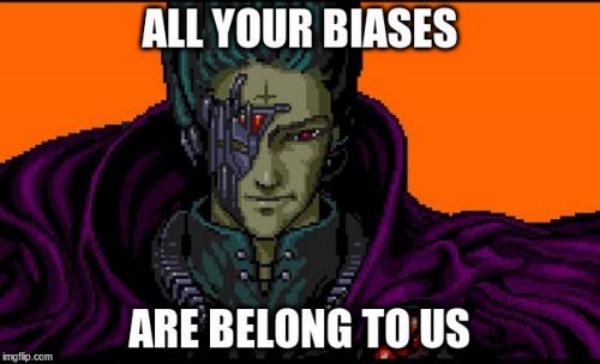The Internet should host ALL voices! No, wait...
The “Law of Unintended Consequences” states that “an intervention in a complex system tends to create unanticipated and often undesirable outcomes”. I wonder if some 100% legitimate aspirations and well-intentioned proposals to make the internet less “white and western” may have just such consequences.
The authors of that article write that:
- web content remains heavily skewed towards rich, western countries
- the skewed geography and gender of Wikipedia edits is perhaps even more concerning
- 20% of the world or less shapes our understanding of 80% of the world
- In a world riven by stereotypes and discrimination, the internet should be challenging the biases of our physical world, not deepening them
- Google and other key mediators of information should have a responsibility to ensure that communities around the world are not flooded with foreign content
- Google and Wikipedia have a responsibility to see that their content isn’t skewed
I do agree that these are serious problems. I also have no ready solution for them (not quick ones, anyway). But I’m worried about the “unintended consequences” of some solutions suggested in the article, or that uninformed readers may conceive from it.
What is a “bias”?

Let’s now look at the real “unintended consequence”. They are hidden behind this sentence:
In a world riven by stereotypes and discrimination, the internet should be challenging the biases of our physical world, not deepening them
The reality is that that sentence is 1000% as narrowly “white-and-western” as the current Internet it wants to change. White Man’s Burden 2.0? The reality is that this planet, today, is full of people who:
- couldn’t care less of certain “stereotypes, discriminations and biases” because they have much more urgent problems to deal with, from extreme poverty, to serious violence of all sorts, or…
- build their whole lives, very often in perfectly good faith, on definitions of “stereotypes, discriminations and biases” that are pretty far, if not opposite, from those of the authours of that article
I wouldn’t be surprised at all if today, worldwide, this group of people were (quite) bigger than the other. The article itself says “20% of the world or less shapes our understanding of 80% of the world”, doesn’t it?
Now, if you tell me that everybody in the world should have equal opportunities of real “write-access” to the Internet, I do agree, no questions. At the same time, and without taking sides, I can’t help point out something that seems absent from that article.
Really giving equal access and space to everybody would do more than put under the spotlight non-western explanations of, say, Syria or Balkans wars. It may very well give much more authority and followers to rejections, exactly as imposed “stereotypes, discrimination and biases” of the current, mainstream white-western views on marriage equality, religion, women rights, racism and so on (added on 2018/01/05: for a PERFECT, real world example just read “This Is What Happens When Millions Of People Suddenly Get The Internet”**.
One unintended consequence of certain actions may be “cultural foreign fighters”: 100% non-violent ones, very likely, but everywhere. Lots of them, with long-term results less obvious than you may think. Are you prepared?
So, the only real solution may be…
the one that is in the article itself, but takes a lot of patience and time to work: “we – as users – also have a responsibility to question the perspectives presented to us by the Googles and the Wikipedias of the world”.
Just remind that enough users able to do that only appear on the scene through quality education. Not thanks to “Please Sir Google, be good” requests, or edit wars which, for the record, are the reasons why I myself, white, male and western, do not contribute to Wikipedia.
Who writes this, why, and how to help
I am Marco Fioretti, tech writer and aspiring polymath doing human-digital research and popularization.
I do it because YOUR civil rights and the quality of YOUR life depend every year more on how software is used AROUND you.
To this end, I have already shared more than a million words on this blog, without any paywall or user tracking, and am sharing the next million through a newsletter, also without any paywall.
The more direct support I get, the more I can continue to inform for free parents, teachers, decision makers, and everybody else who should know more stuff like this. You can support me with paid subscriptions to my newsletter, donations via PayPal (mfioretti@nexaima.net) or LiberaPay, or in any of the other ways listed here.THANKS for your support!